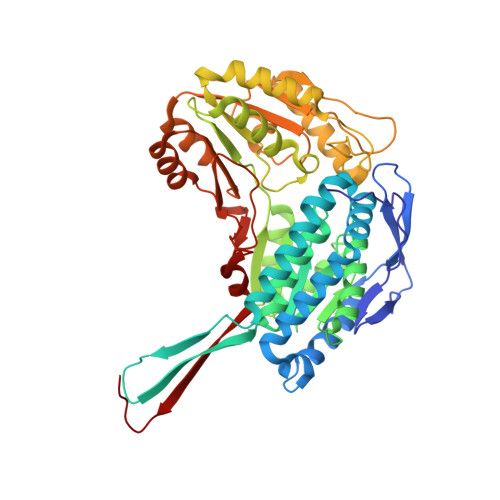Development of selective inhibitors for aldehyde dehydrogenases based on substituted indole-2,3-diones.
Kimble-Hill, A.C., Parajuli, B., Chen, C.H., Mochly-Rosen, D., Hurley, T.D.(2014) J Med Chem 57: 714-722
- PubMed: 24444054
- DOI: https://doi.org/10.1021/jm401377v
- Primary Citation of Related Structures:
4KWF, 4KWG, 4L1O - PubMed Abstract:
Aldehyde dehydrogenases (ALDH) participate in multiple metabolic pathways and have been indicated to play a role in several cancerous disease states. Our laboratory is interested in developing novel and selective ALDH inhibitors. We looked to further work recently published by developing a class of isoenzyme-selective inhibitors using similar indole-2,3-diones that exhibit differential inhibition of ALDH1A1, ALDH2, and ALDH3A1. Kinetic and X-ray crystallography data suggest that these inhibitors are competitive against aldehyde binding, forming direct interactions with active-site cysteine residues. The selectivity is precise in that these compounds appear to interact directly with the catalytic nucleophile, Cys243, in ALDH3A1 but not in ALDH2. In ALDH2, the 3-keto group is surrounded by the adjacent Cys301/303. Surprisingly, the orientation of the interaction changes depending on the nature of the substitutions on the basic indole ring structure and correlates well with the observed structure-activity relationships for each ALDH isoenzyme.
Organizational Affiliation:
Department of Biochemistry & Molecular Biology, Indiana University School of Medicine , MS4053, 635 Barnhill Drive, Indianapolis, Indiana 46202, United States.


















